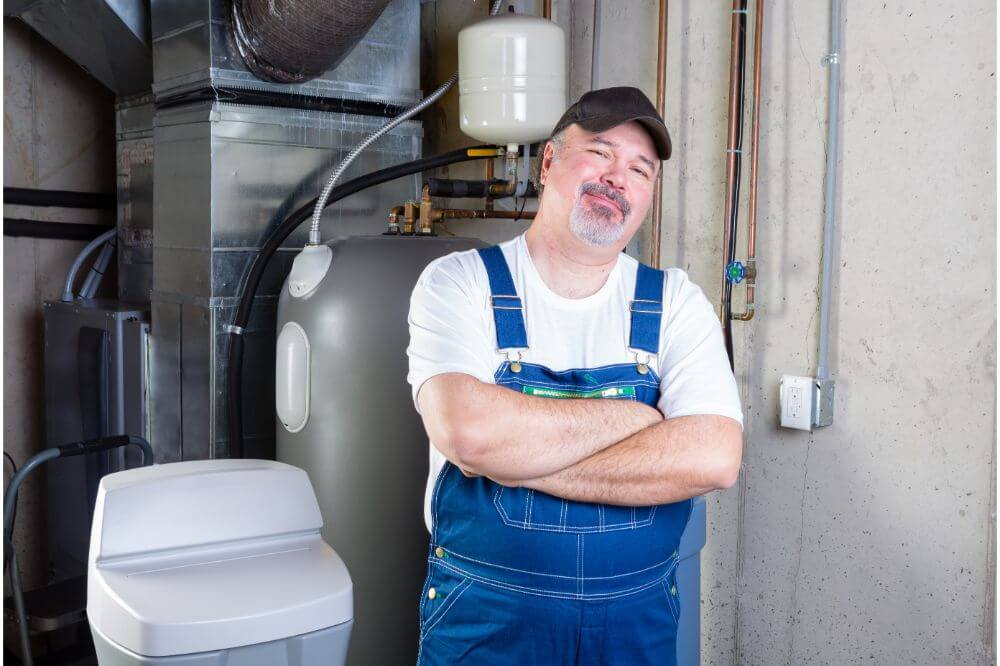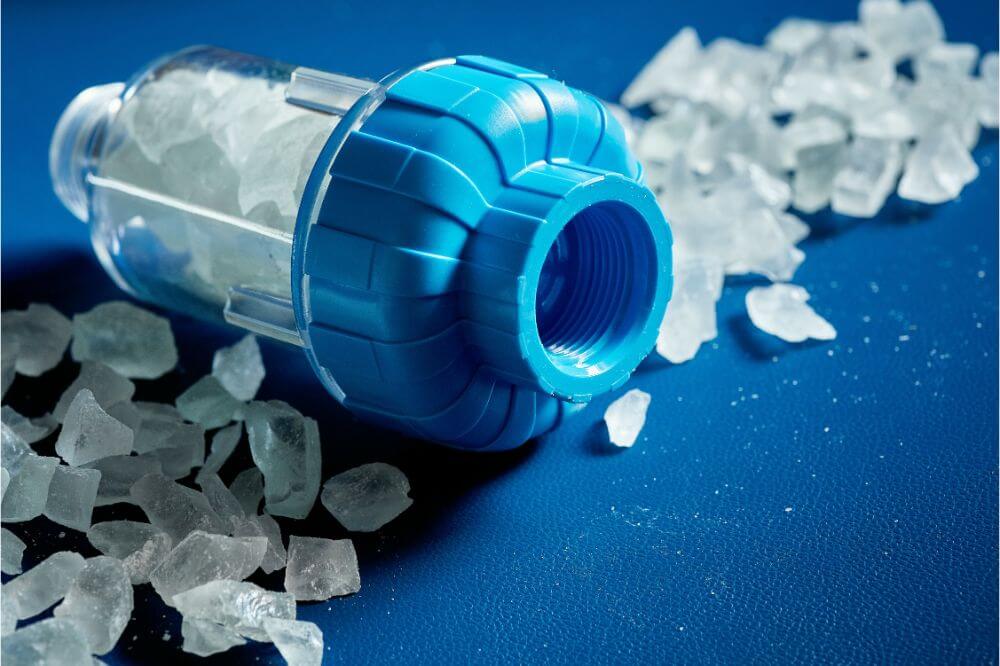Do salt-free water softeners work is a question many people ask. Most water softeners are salt-based. These devices exchange ionized salts for minerals, such as calcium and magnesium, effectively removing them. A water softener contains resin beads saturated with salt.
When the water flows over the beads, they release the salt. The salt swaps out with the minerals, which become trapped in the beads.
A salt-free water softener crystallizes the minerals. To do this, it uses potassium to create a chemical reaction. Unlike a water softener, the device does not remove minerals. The crystallization of the minerals stops the development of scale because the minerals cleave together and can’t escape to clog your pipes or disfigure your faucets.
Soft water is free from minerals. A water conditioner doesn’t remove the minerals, so the water that passes through it is not soft.
There is no such thing as a salt-free water softener. Appliances claiming to be such are, in fact, water conditioners or scale inhibitors.
Why Soften the Water?
Hard water contains an excess of minerals. It is a problem with which many householders battle. A geological survey conducted in the US found that 85% of the water in the country can be classified as hard.
Excess minerals in water can cause a buildup of limescale in your plumbing and affect the water pressure. In extreme cases, it can even completely block the flow of water.
Limescale can create an ugly buildup on kitchen and bathroom faucets, but water heaters and appliances suffer the most damage. Hot water escalates the pace at which the limescale builds up.
The mineral deposits in your water heater, washing machines, and other such appliances cause inefficiencies. This will result in higher electrical usage because the heat must pass through the mineral deposits before heating the water.
Soaps and detergents are also affected by hard water as they don’t lather effectively. Ugly soap scum buildup in kitchen and bathroom sinks offers a telltale sign of hard water.
Traditional water softeners provide a solution to the problem, but the added sodium has led to some debate. The amount of sodium added by water softeners is, however, much lower than one might imagine.
Another problem results from the process of regeneration. When removing trapped minerals from the resin beads, salty water is released into the drainage system. As a result, some municipalities have banned the use of salt-based water softeners.
Are Salt-Free Water Conditioners Effective?
If preventing scale buildup is your main concern, then a salt-free water softener will do the job. However, the water conditioner cannot offer you the benefits of a water softener because it doesn’t remove the minerals from the water.
As a consequence, your laundry will look dull and colorless, your glasses and crockery will look streaky as the soap won’t rinse off properly. You will also have a problem lathering your shampoo or soaking in a tub full of soapy suds.
Since a salt-free water conditioner won’t remove the minerals, it also won’t solve any of the problems associated with minerals in the water.

Best Use for Salt-Free Water Conditioners
If you live in an area with a high level of minerals in the water, installing a salt-free water conditioner will help preserve your hot water appliances.
In the presence of limescale, tankless water heaters will run inefficiently, significantly increasing your electricity costs. The accumulation of mineral deposits will also reduce the life expectancy of the water heater.
Salt-free water conditioners are easy to install, and they require no electricity, so this is a relatively trouble-free installation.
A salt-free water conditioner may be your best alternative to a conventional water softener in areas where the use of an ionized water softener is banned or discouraged.
The Benefits of a Salt-Free Water Conditioner
While a water conditioner can’t lay claim to softening water, they do offer benefits. These are listed below.
Easy Installation
These conditioners consist of a cartridge or tank. They require no drainage or electrical point.
Easy Maintenance
No backflushing or regeneration is required. Water conditioners can also remove the existing scale from inside the plumbing; as the crystals move through the pipes, they scrub off the existing scale.
Eco-Friendly
A salt-free water conditioner produces no wastewater, so there is no need for the water treatment to scrub the chlorides from the drained water. Water conditioners are also more water-efficient as the water passes directly through the system into use.
Conclusion
While a salt-free water softener may not be all it is made out to be, it has its merits. It is quick and easy to install and maintain. It is kind to the environment and is relatively inexpensive. If your primary aim is to prevent minerals from accumulating in your pipes and appliances, a salt-free water conditioner will do the job.
For all other hard water problems, you’ll need a salt-based water softener.

